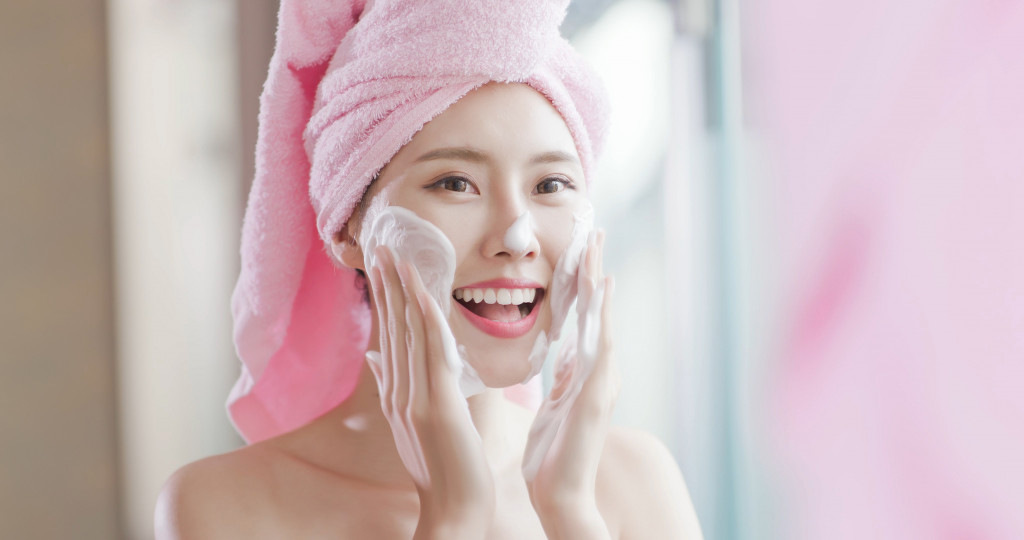No doubt, acne is the most well-known and common skin condition in the United States. It affects at least 50 million men and women, according to the American Academy of Dermatology Association.
It can begin as early as adolescence; and although for some, it starts to disappear as they age, it may not be the case among hundreds. In some situations, acne flares happen, leaving the affected skin inflamed and filled with painful nodules or papules.
But here’s some good news: today, people who deal with acne can explore a variety of treatments and therapies. Thus, effects are more long-lasting and flares are more manageable.
Moreover, by taking care of their acne-prone skin, they can lower the chances of recurrence or severe acne. They can begin with these tips:
1. Pay Attention to How You Bathe
Bathing and showering can do one’s skin good even when it’s breaking out with acne. However, one needs to do it right.
For those with back acne, a lukewarm soak on a sea salt bath can help. The ingredient helps dry out the zits. During showers, lessen the use of hot water. Otherwise, limit the time to only a minute or two.
Too much heat will dry the skin but also force the body to produce more sebum or natural oil. While it helps keep the skin moisturized, it is also a major component for developing acne.
When drying off, pat, not rub, the towel. Doing the latter will only increase the risk of popping the nodules or blackheads with bacteria. Then this harmful organism can spread out on the unaffected areas, leading to a more serious and prolonged acne breakout.
It is important to use clean towels. Usually, they need to be washed after three uses. During an acne flare, though, they may want to change it daily.
2. Choose the Right Products
Having an acne flare-up may mean adjusting or changing the skincare routine. One may need to ease down on toners and astringents. During the acne phase, the skin may be more sensitive.
However, the person still needs to apply sunscreen. Moisturizing the skin is also essential if it is incredibly dry. It lowers the odds of cracking, itchiness, and more infections.
But the choices of products matter. Dermatologists recommend body and facial care products with salicylic acid, which can exfoliate the skin and unclog the pores.
These products are available in different strengths. For severe acne, the doctor may encourage a prescription-strength formula. For mild or moderate cases, over-the-counter options may work.
When a person has acne, it’s best to allow the skin to breathe or limit putting anything that will only clog the pores further. But they can still wear makeup when they want to.
What are the best choices for makeup for acne? Whether one is buying a loose foundation or a primer, always choose those that are non-comedogenic. This means they are less likely to worsen acne since they don’t add more oil to the skin.
Currently, there’s a rating to determine how non-comedogenic a product is, but the process itself doesn’t follow a universal standard. The word is also not regulated by the FDA, so some products can claim to be non-comedogenic when they’re not.
To avoid getting these, learn to read the ingredients. Oils like grapeseed, sunflower, neem, and sweet almond are non-comedogenic. Stay away from those with lanolins, isopropyl myristate, and dyes even if they contain essential oils.
3. Avoid Touching the Face

Despite warnings, many men and women with acne still pop their pimples. They still mistakenly believe that it will speed up the healing process as they can already release the pus.
The opposite effect can happen. When the pimple pops, bacteria can come out of the pores and unfortunately infect the others. Thus, acne spreads and worsens.
Popping can also lengthen the healing process. Not only does the acne spread, but the popped site can also become inflamed and reinfected.
Moreover, this action can increase the risk of scarring. Depending on the size of the zit or the frequency of popping, the scars can be deep they are noticeable and difficult to remove.
Constantly touching the face won’t help either. The hands are some of the dirtiest body parts. They come into contact with surfaces and objects touched by others. No wonder they are filled with bacteria, some of which can cause or aggravate acne.
Acne demands a lot of patience. For some, it can take a week or two. For others, it may last for years, especially when left untreated.
Fortunately, people can always get help from excellent facial products and professionals. These self-care tips can also keep their skin healthy and support acne treatments.


